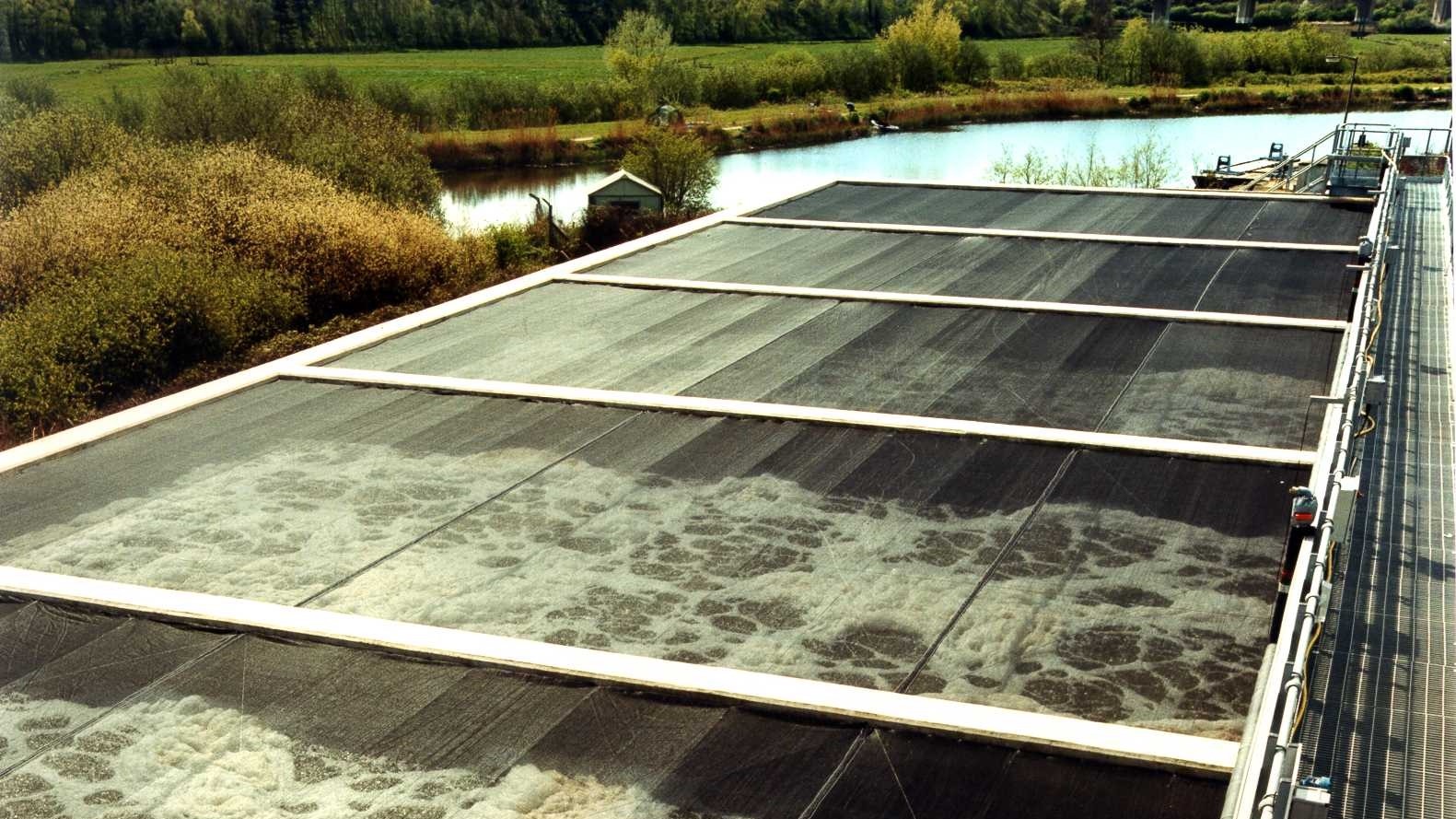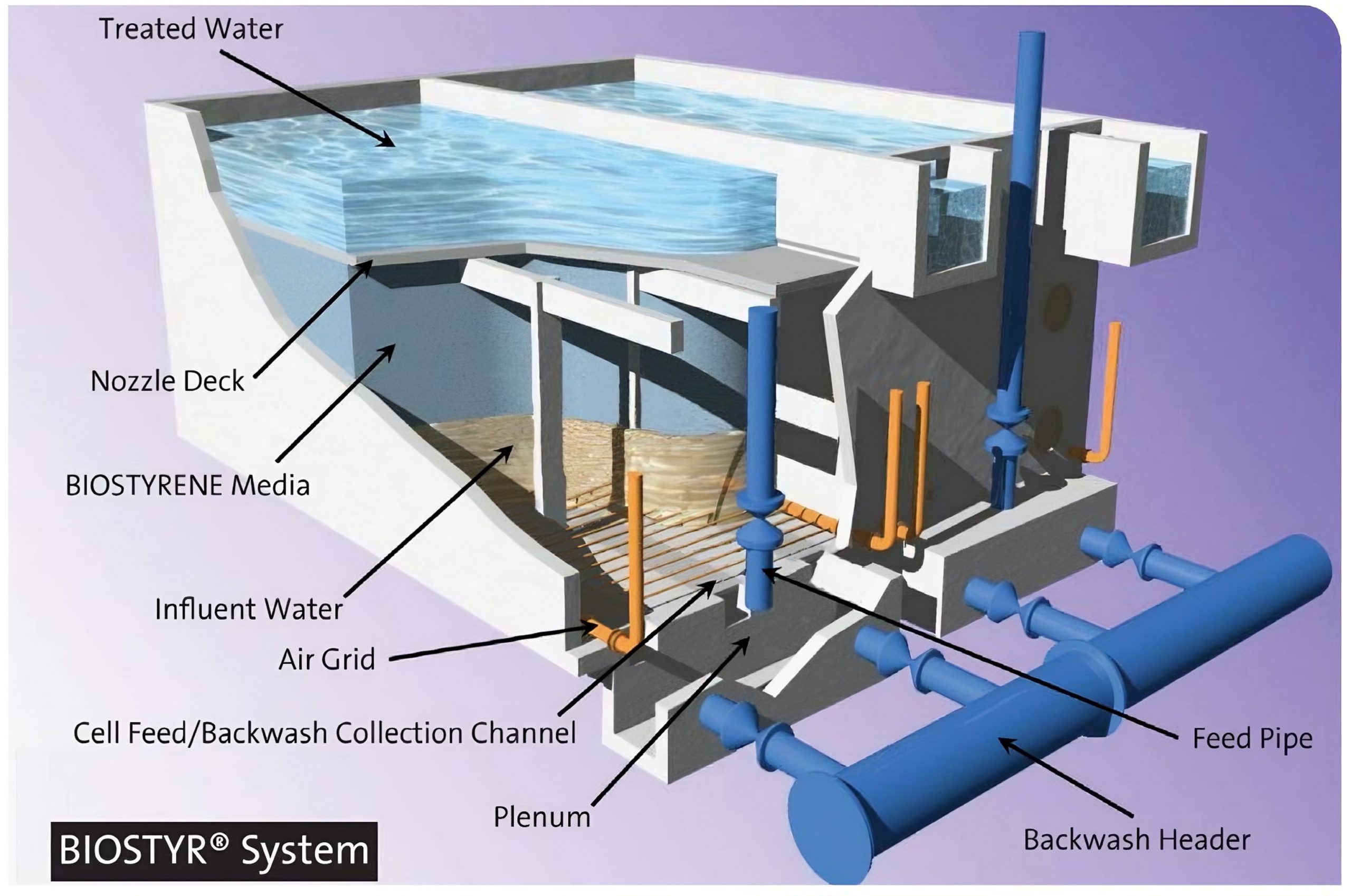Veolia Water Technologies UK (VWT UK) has been working with one of the UK’s major water companies to refurbish and upgrade an existing VWT Biostyr water treatment plant as an alternative to a new installation.
This approach to meeting tightened water discharge standards successfully decreased the scope of work required, reduced the capital investment and minimised the overall environmental impact.
VWT UK installed the existing Biostyr plant in 2002 as a tertiary treatment process at the water recycling centre. However, the Water Industry National Environment Programme (WINEP) identified this site as one where tighter consent levels were required to raise the local watercourse to a ‘good ecological status’. Specifically, from March 2025 the ammonia consent will be reduced from 6mg/l to 3mg/l, a level that the existing treatment processes could not reliably achieve.
The water company’s initial intention was to replace the Biostyr biofiltration system with a Moving Bed Biofilm Reactor (MBBR) solution to achieve the required level of treatment. VWT UK carried out a full assessment of the plant and recommended upgrading the existing plant to Biostyr Duo. This was based on the findings that the tanks and other equipment were still in excellent condition despite two decades of use.
Biostyr removes pollutants, including organic (biochemical oxygen demand and chemical oxygen demand), nitrogenous (N-NH4 and N-NO3) and suspended solids using an active biomass that develops on submerged BIOSTYRENE™ media. Biostyr Duo combines this process with MBBR technology by adding the K5 media used in the AnoxKaldnes™ MBBR to the Biostyr tanks. Utilising these two complementary media types results in an increased treatment capacity using the same reactor volume. For this site, VWT UK also recommended the addition of retention sieves over the outlet channels to prevent media loss.
Crucially, refurbishing and upgrading the plant rather than replacing it with an entirely new system was found to be more cost-effective. Savings were achieved through reduced capital outlay as well as eliminating the need for additional civil and enabling works and the decommissioning and removal of the old system. In turn, this also reduced the embodied carbon impact of the installation – the emissions associated with the materials used and the construction process. Manufacturing, transporting and installing the new equipment as well as removing and disposing of the old plant would have resulted in a much larger carbon footprint.
There was a risk that some of the tanks would require a greater degree of renovation than initially thought once work began. However, VWT UK completed an upfront audit to reduce unforeseen costs for the client. Over the last year, VWT UK has been upgrading the Biostyr cells on site one by one allowing a period of time for the biology to become fully established in each before moving onto the next. On the cells completed to date, the work has been straightforward with only the expected level of refurbishment required. The water quality test results show that the cells upgraded to Biostyr Duo are performing as expected and delivering the required new levels of treatment.
Matt Langdon, Business Development Manager at VWT UK commented: “This project demonstrates VWT UK’s ability to refurbish and upgrade existing works to meet current and future requirements, and the benefits of doing so. This approach, which we have taken with a number of projects to date, helps our clients to meet their environmental targets as well as offering a cost-effective route to compliance.”




